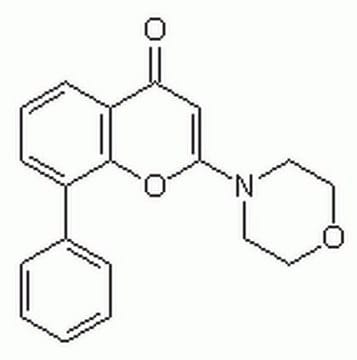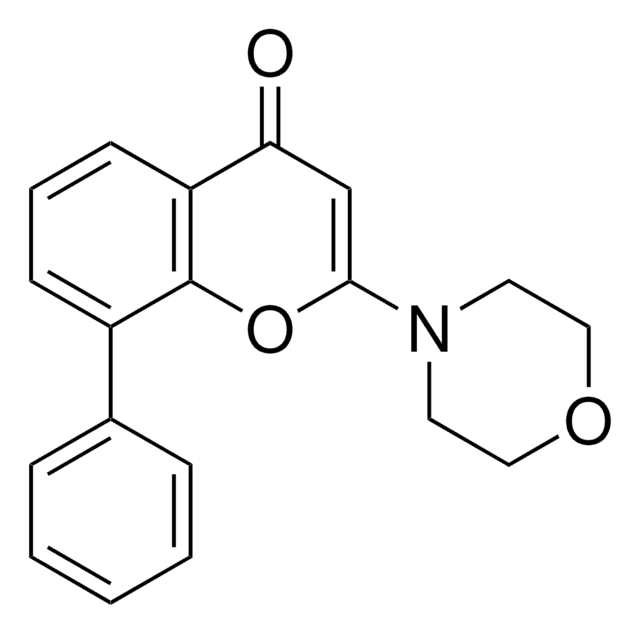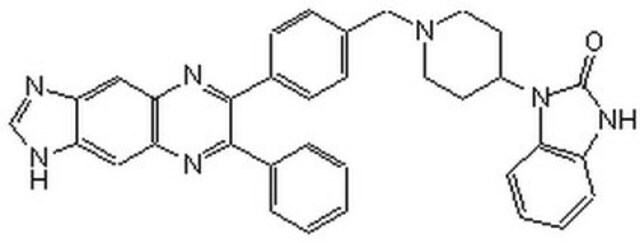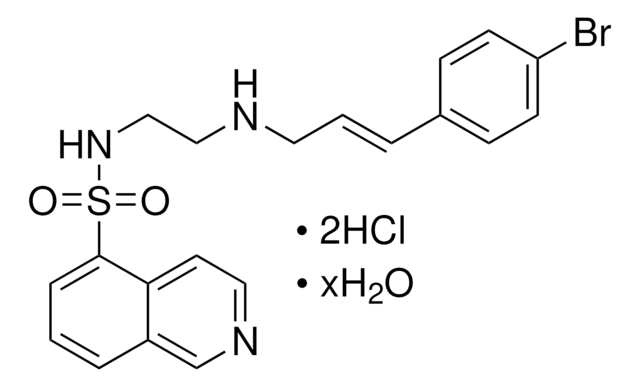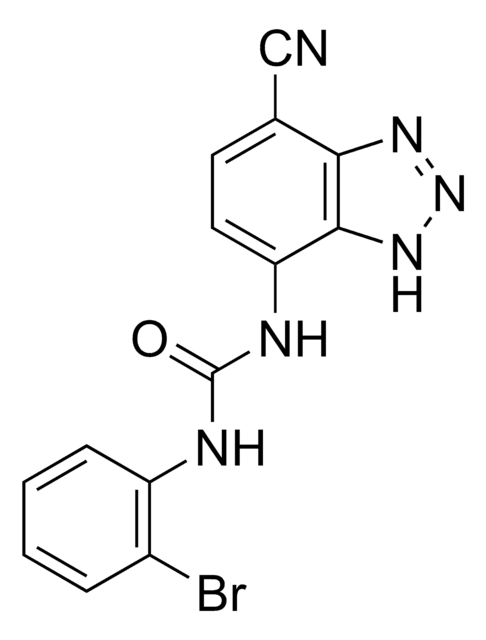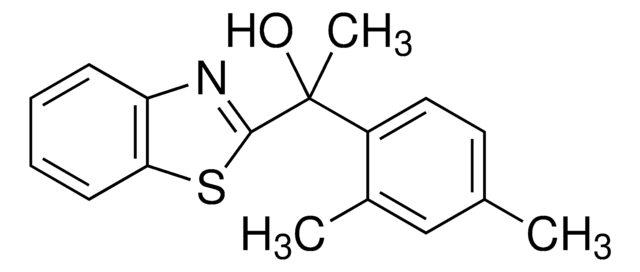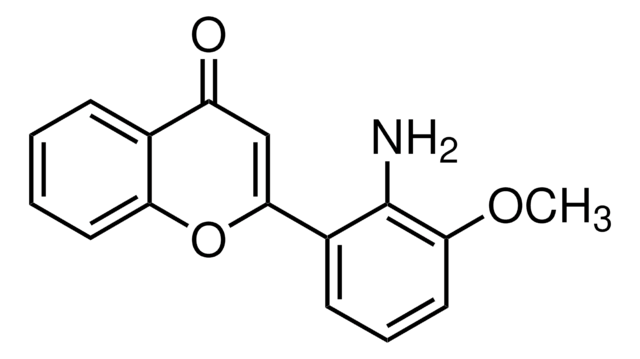124011
Akt Inhibitor IV
The Akt Inhibitor IV, also referenced under CAS 681281-88-9, controls the biological activity of Akt. This small molecule/inhibitor is primarily used for Phosphorylation & Dephosphorylation applications.
Synonym(s):
Akt Inhibitor IV
About This Item
Recommended Products
Quality Level
Assay
≥98% (HPLC)
form
solid
manufacturer/tradename
Calbiochem®
storage condition
OK to freeze
desiccated (hygroscopic)
protect from light
color
yellow
solubility
DMSO: 5 mg/mL
shipped in
ambient
storage temp.
2-8°C
InChI
1S/C31H27N4S.HI/c1-3-34-28-22-23(31-32-26-16-10-11-17-29(26)36-31)18-19-27(28)35(25-14-8-5-9-15-25)30(34)20-21-33(2)24-12-6-4-7-13-24;/h4-22H,3H2,1-2H3;1H/q+1;/p-1
InChI key
NAYRELMNTQSBIN-UHFFFAOYSA-M
General description
Biochem/physiol Actions
Akt
Packaging
Warning
Reconstitution
Other Notes
Selected Citations
Lee, J., et al. 2009. Cell Stem Cell5, 76.
Legal Information
Storage Class Code
11 - Combustible Solids
WGK
WGK 3
Flash Point(F)
Not applicable
Flash Point(C)
Not applicable
Certificates of Analysis (COA)
Search for Certificates of Analysis (COA) by entering the products Lot/Batch Number. Lot and Batch Numbers can be found on a product’s label following the words ‘Lot’ or ‘Batch’.
Already Own This Product?
Find documentation for the products that you have recently purchased in the Document Library.
Customers Also Viewed
Articles
AldeRed™ 588-A detects ALDH activity in cancer stem cells, aiding in cancer research.
Our team of scientists has experience in all areas of research including Life Science, Material Science, Chemical Synthesis, Chromatography, Analytical and many others.
Contact Technical Service

